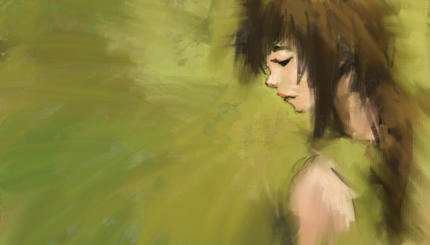When I saw the little blue line on the pregnancy test, I felt like I was walking on air. A couple of weeks later, a scan confirmed our little miracle.
But soon I began to feel… different. Not joyful. Not content. I couldn’t understand it. We had prayed for this pregnancy and had been blessed with what, Baruch Hashem (Thank Gd), appeared to be a healthy baby. So why didn’t I feel happy?
I told myself it would pass. But instead of improving, I got worse. I realized something was wrong, but I couldn’t put my finger on it. This was more than the usual fatigue and moodiness that comes with many pregnancies (including my previous two).
It got so bad that I had major panic attacks and days when I was too terrified to get out of bed, even to take the kids to school. I had horrifying visions and thought I was going insane. That’s when we sought help, and I was diagnosed and hospitalized with Peri-Natal Distress or PND. (What used to be known as Post-Natal Depression, or postpartum depression, is now being referred to as Peri-Natal Distress, because it can occur both before and after birth, and can take the form of both traditional depression and heightened anxiety.)
For more articles on peri-natal distress/postpartum depression, click here.
It was a huge relief that I wasn’t going crazy. I had a recognized medical condition caused by hormonal fluctuations as well as psychosocial stressors associated with the huge change of life that comes with having a baby (even if you’ve successfully done it a few times before, apparently!).
Still, I was ashamed to tell people that I had to be treated for depression at what should have been such a happy time of my life. I was supposed to be radiant with joy and rubbing my growing belly with tender wonder. I was sure that people would judge me. What kind of person is terrified of her own baby? When it hasn’t even been born yet?
Jews talk A LOT. But one topic we don’t talk about enough is PND. PND is the most common complication of childbirth, according to the World Health Organization, affecting up to 15% of women (with many more likely undiagnosed because of fear and stigma). That means it’s extremely likely that you know someone – or several people – who have been affected.
PND has potentially devastating effects on patients and their families. But the great news is that, like any other illness, it can be treated – and it has an extremely high success rate. I am, Thank Gd, fully recovered, thanks to a combination of medication to correct the hormonal imbalances and psychotherapy to help me find new and better ways of dealing with these challenges. My daughter is here, happy and healthy.
I couldn’t have done it without an incredible amount of support. My husband’s faith in me and in Gd that we would get through this trying time – and his ability to keep the kids, the household and his practice running smoothly – has left me in complete awe. I’m grateful to my family and friends for bringing meals while I was in hospital and saying tehillim (psalms) in our merit. I’m thankful to my wonderful doctor (yes, he’s Jewish, but he’s married), and to Gd for sending me the help I needed. As King David reminds us, Gd answers our calls: “From the narrow place I called out to Gd, Who answered me with the Divine Expanse” (Psalm 118:5).
Nobody knows why Gd allows people to suffer from PND (or, indeed, any other disease, condition or syndrome). Having told us to go forth and multiply, one would think He’d do what He could to make the process easy for us. But that’s not how it works. From morning sickness to labour pain, He has made it every bit as challenging as it is rewarding.
I suppose Gd sends us all challenges we might not understand. It’s how He helps us grow. This pregnancy, I think I grew more on the inside than I did on the outside.
Our sacred texts speak of dor le dor (generation to generation). Let’s begin the process of healing now, so that the next generation – our precious children – may never have to suffer the shame of unfair stigma and the severe damage that untreated depression can cause. If we succeed, our children’s children will live in a more compassionate society. Now that’s tikkun olam (healing the world).
For more Jewish parenting articles, visit our sister site Kveller.




